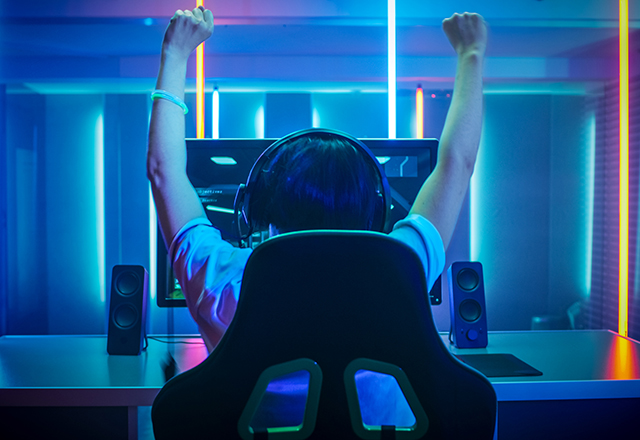During the first few years of my Ph.D., participating in intramural soccer, badminton and volleyball leagues run through the Cooley fitness center was a great way to have fun and meet other students outside of my own program. But last year, our volleyball team’s winning streak was abruptly cut short by the pandemic. Cooley closed, and all sports leagues were indefinitely put on pause.
Enter the Graduate Representative Organization’s (GRO) e-sports league. E-sports, or electronic sports, have been rapidly rising in popularity over the past few years. These videogame competitions pit teams or individuals against one another while matches are streamed live for audience spectators.
Graduate student and league organizer Vittorio Loprinzo says the idea was originally suggested by an incoming graduate student. The five games currently included in the league were picked to span a wide breadth of gaming genres, from team-based shooters to soccer (played with cars!), and four are entirely free to play. This season, 175 students from across the undergraduate, graduate and medical schools are signed up to play. Matches are organized through the Discord messaging app, and a select few are livestreamed for audience spectators through Twitch.
To join in on the fun, I borrowed a friend’s Switch and entered as a Super Smash Bros. contestant. For singles, I played alone. For doubles, I was matched to another free agent, an undergraduate who I never would have met under normal circumstances. We’ve played and laughed and lost horribly together, and I’ve had a lot of fun so far.
One of the things Vittorio has been most proud of is how active the Discord group has been in fostering community. “Originally, it was just for scheduling matches,” he says. “But now, people are playing unscheduled matches, talking about [downloadable content] and watching world championships together. People have made new friends because of this.” Vittorio hopes to find a way to solidify these connections so that these friendships persist, even after the league has ended.
The post-pandemic future of the e-sports league remains uncertain, as its budget is typically used for other GRO events that have been canceled due to COVID-19. Depending on interest, there is a chance that it could continue. For now, though — game on!
Related content
- Quarantine Activities: Virtual Escape Rooms
- Traveling (Virtually) During Quarantine
- Holiday Construction and Conversation
Want to read more from the Johns Hopkins School of Medicine? Subscribe to the Biomedical Odyssey blog and receive new posts directly in your inbox.
